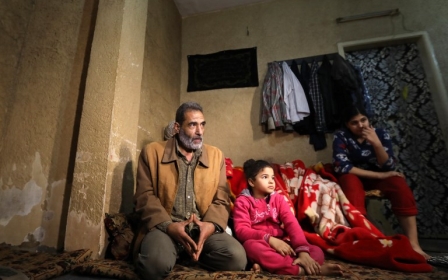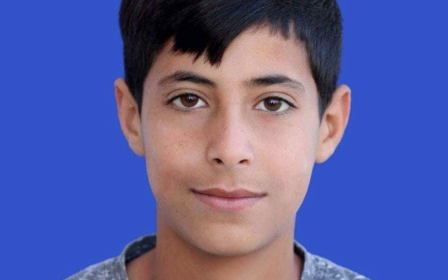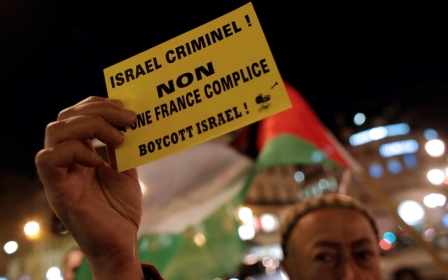Arab ministers call for UN-led 'mechanism' for Palestine peace process
Arab foreign ministers on Thursday called for the creation of a UN-backed "multilateral mechanism" to help revive the peace process between Israel and the Palestinians.
The appeal was issued at the end of a two-day meeting to discuss US President Donald Trump's 6 December recognition of Jerusalem as Israel's capital, which has sparked Arab anger.
Trump's decision also to relocate the US embassy to Jerusalem from Tel Aviv triggered deadly clashes in the Occupied Palestinian Territory and was rejected in a non-binding UN General Assembly resolution.
The Palestinians have frozen contacts with the Trump administration over the decision and said Washington can no longer mediate in the Middle East conflict.
Meeting at the Arab League headquarters in Cairo, the foreign ministers called for the "creation of an international and multilateral mechanism under the aegis of the United Nations to sponsor the peace process".
They also asked for an international conference to restart peace talks between Israel and the Palestinians and for the international recognition of a Palestinian state with East Jerusalem as its capital.
Palestinian Foreign Minister Riyad al-Malki told reporters in Cairo that the "old mechanism has ceased to exist and is history".
Israel occupied the West Bank, including East Jerusalem, in the 1967 Six-Day War. It later annexed East Jerusalem in a move never recognised by the international community.
In December 2016, the UN Security Council condemned Israeli settlements in the West Bank.
Palestinian leader Mahmoud Abbas will deliver a rare address to the UN Security Council on 20 February.
Abbas's speech will come a few weeks after Nikki Haley, the US ambassador to the UN, strongly criticised him during a council meeting and said he lacked the courage needed for peace.
Kuwait's ambassador to the UN, Mansour al-Otaibi, who holds the council presidency for February, told reporters it was "important" for the top UN body to "listen to the president himself" during the Middle East debate.
Israeli ambassador Danny Danon said in a statement that Abbas's address to the council would further damage prospects for direct peace talks with Israel.
At a council meeting last week, Haley said Abbas had "insulted" Trump and said "we will not chase after a Palestinian leadership that lacks what is needed to achieve peace".
New MEE newsletter: Jerusalem Dispatch
Sign up to get the latest insights and analysis on Israel-Palestine, alongside Turkey Unpacked and other MEE newsletters
Middle East Eye delivers independent and unrivalled coverage and analysis of the Middle East, North Africa and beyond. To learn more about republishing this content and the associated fees, please fill out this form. More about MEE can be found here.




